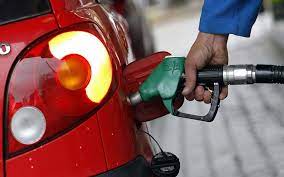Nigerians Divided over Planned Fuel Subsidy Removal

James Danjuma M.
Mixed reactions have continued to trail the decision of the federal government to remove subsidies on fuel by the second half of 2022.
According to the federal government, the huge amount that would be saved from the removal of subsidies will be used to fund critical projects, a position backed by the International Monetary Fund (IMF).
But the decisions have generated both commendation and condemnation from Nigerians.
While some Nigerians believe that the money being used to subsidize fuel can be channeled to developing the critical sectors of the economy, others think that the government’s action would bring untold hardship to the already impoverished Nigerians.
This set of respondents believes that rather than paying subsidies for petrol, market forces should be allowed to determine prices.
It should be stated that this is not the first time the federal government has attempted to remove subsidies on petroleum products, just as it is also not the first time the movie has received opposition.
For decades, the Nigerian government has been spending trillions of naira on yearly basis on payment of subsidies on petroleum products and this according to critics is hurting the nation’s economy.
When former President Goodluck Jonathan tried to remove the subsidy in 2012, the move was greeted with strong criticism and nationwide protest that almost grounded the nation then.
Read also: Lagos Groans Under Deplorable Infrastructure
Before then, Nigerians also resisted the effort by the military junta of Ibrahim Babangida in 1986, and there are already signs the current administration of President Muhammadu Buhari would face a similar response if it goes ahead with the subsidy removal.
According to pundits, what many Nigerians want is for the government to keep fuel costs low as the subsidy is the only benefit they receive from the country’s oil wealth.
It is further argued that the removal of fuel subsidies would lead to a rise in the cost of commodities and living, and by extension rise in inflation.
The opponents again expressed fear that by the time Nigerians are made to pay the full cost of fuel, coupled with the hike in cooking gas, increase in electricity tariff among other related increases, would further put many Nigerians in misery.
The inflationary pressure would make it difficult for minimum wage earners to make ends meet, while some private companies would have to fire some of their workforces in order to keep afloat.
But business leaders think that before its removal, the government needs to sit and discuss with stakeholders on both the economic and social implications of the action.
They say measures should be mapped out, like the planned payment of N5,000 to some 40 million Nigerians for transportation, to cushion the inflationary impact the removal would cause.
According to them, the most effective way of reducing the impact of higher prices that will result from the removal is to allocate the savings to invest in critical infrastructure like transportation, health and education that have direct impact on common Nigerians.




